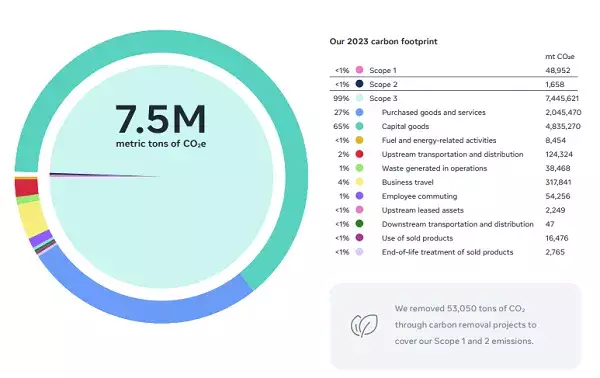Meta Platforms Inc., the tech giant known for its social media innovations, recently published its “Responsible Business Practices Report.” The report spans 144 pages and addresses a spectrum of issues, particularly emphasizing the company’s approach to artificial intelligence (AI), its positionality concerning the metaverse, social responsibility, and environmental impacts. At first glance, the report brims with optimism regarding Meta’s advancements and its purported commitment to socially responsible practices. However, beneath this surface, there are significant complexities and unanswered questions that warrant a critical examination.
A central theme in the report is Meta’s exploration of AI technology. The company posits that expanding accessibility to AI tools is crucial for mitigating disparities between regions. It argues that unequal access to technology could exacerbate existing divides. While this objective may sound commendable, it raises several concerns. First, the democratization of AI comes with the inherent risk of misuse; providing wider access without stringent guidelines could lead to ethical dilemmas and potential harm. The question then becomes: How does Meta ensure that such democratization equally promotes safe and responsible use across various regions that may lack regulatory oversight?
Meta also emphasizes a commitment to open-source development for its AI capabilities. This approach could indeed empower smaller developers and startups, leading to heightened innovation. However, the challenge lies in balancing open access with the associated risks, such as the proliferation of biased algorithms or dangerous applications. Therefore, while Meta articulates a progressive vision, the practical ramifications of its AI strategies necessitate deeper scrutiny.
Another pronounced focus in the report is Meta’s ambition to shape the metaverse, which it positions as the next frontier of social technology. The narrative suggests a transformative vision for connectivity and interaction, driven largely by augmented and virtual reality tools. However, the concept of the metaverse raises legitimate concerns regarding user safety, privacy, and ethical considerations.
Meta has stated that it is committed to creating immersive environments that enhance social interaction. But, given the company’s historical challenges with user data protection, skepticism is merited. Creating a safe and trustworthy metaverse environment is a Herculean task that Meta must grapple with. The inherent risks that accompany user-generated content in virtual spaces could exacerbate issues surrounding harassment and misinformation that the platform has faced previously.
The report outlines that since 2019, Meta has invested over $5.5 billion in privacy initiatives. While this investment is substantial, it begs the question of whether it stems from a genuine commitment to protecting user data or is rather a response to external pressures and previous controversies surrounding data misuse. Transparency in these endeavors remains pivotal as the scrutiny around personal data handling continues to intensify.
Moreover, while emphasizing privacy safeguards, there exists a paradox with Meta’s engagement in political contributions through MetaPAC. While the report claims that support for candidates aligns with the company’s policy views, it underscores a potential conflict of interest. One has to wonder whether such political financial influence could compromise the very privacy and ethical commitments that Meta professes to uphold.
In addressing its broader social impact initiatives, Meta outlines various achievements from the past year. The focus on promoting diversity in its supply chain and community engagement is admirable. However, there remains a disconnect between such initiatives and the ongoing challenges the company faces around content moderation and misinformation. The effectiveness of its fact-checking processes and the removal of harmful content is a critical area of concern, particularly given the integral role these elements play in shaping public discourse.
While Meta’s intention to uphold human rights is commendable, one must approach such claims with caution, especially considering the potential for contradiction between its corporate actions and stated values. It is crucial to critically assess whether these initiatives lead to tangible change or if they serve as a veneer for deeper systemic issues within the company.
While Meta strives to project itself as a responsible business leader through its latest report, the complexities and potential pitfalls of its initiatives warrant careful inspection. The ambitious goals pertaining to AI, the metaverse, privacy, and social impact offer a vision that appears progressive at first glance. However, the underlying risks associated with these efforts, along with historical precedents of data mishandling and ethical dilemmas, must be weighed against the company’s intended narrative. As Meta moves forward, it must confront these challenges earnestly, ensuring that corporate responsibility is not just a matter of marketing but a genuine ethos that informs its practices on all fronts.


Leave a Reply